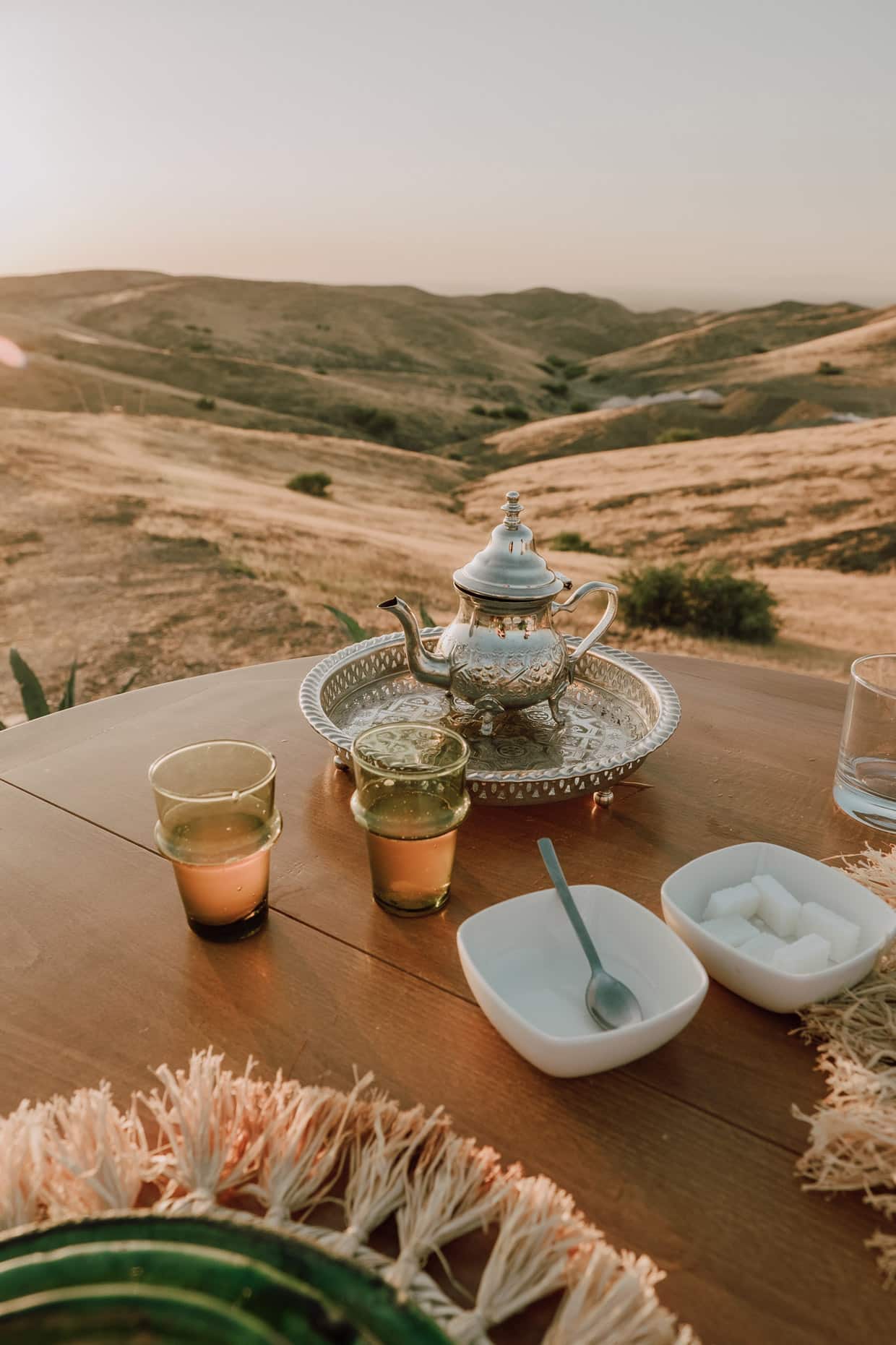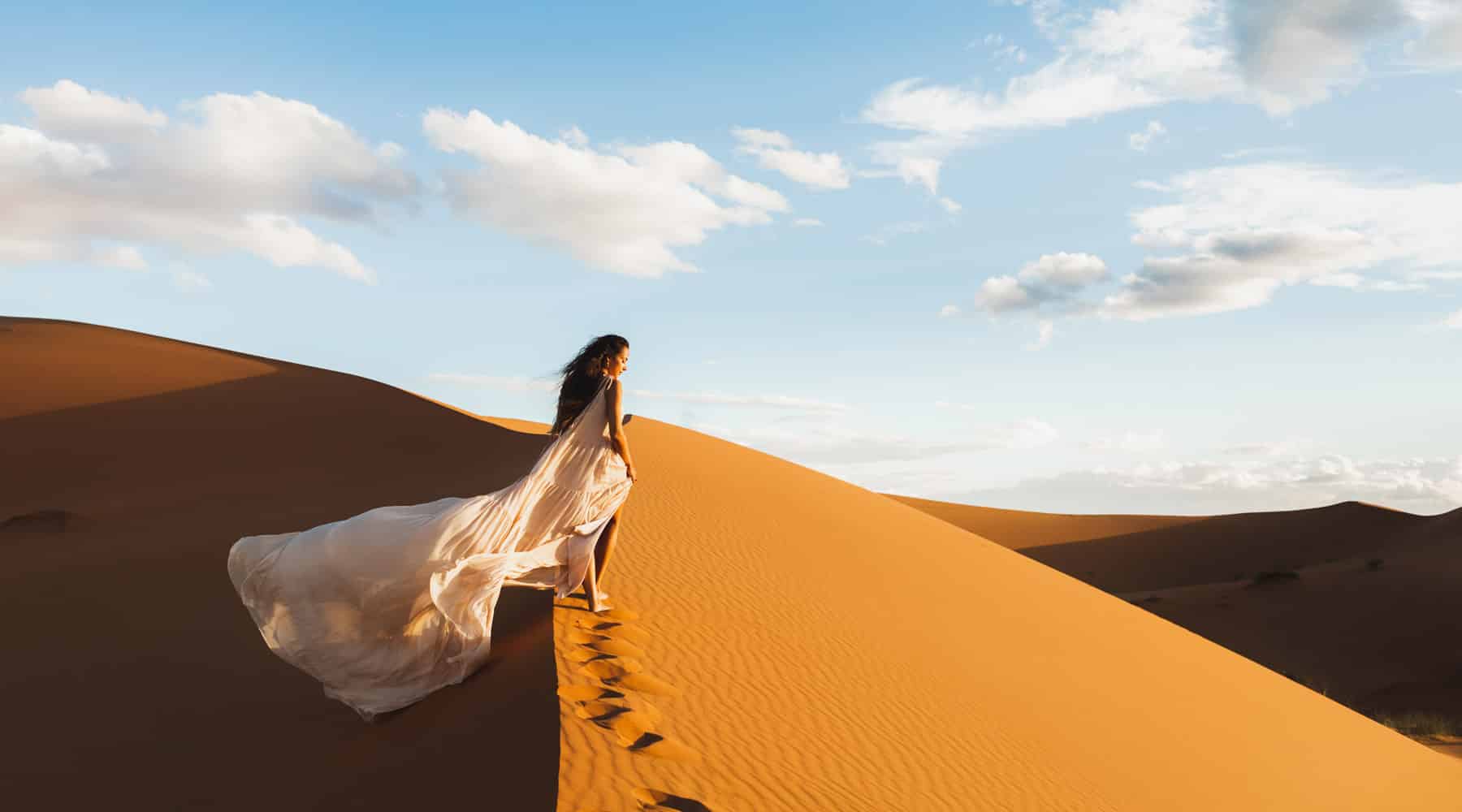The Sahara Desert is the biggest arid desert all over the world. With a square of about 9 million km2, Sahara is in Africa and is stretched through Mauritania, Morocco, and Algeria. The word Sahara has its root in Arabic, and it means desert. Visiting the Moroccan Sahara is the main reason for people around the world to travel and visit Morocco. The glorious high sandy hills and watching them can be a good reason for travelers to choose Moroccan Sahara.
Weather and The Best Time to Visit Sahara
You will experience a wide variety of temperatures and climates in the Sahara. It’s because of its vastness and different altitudes. The temperature reaches more than 50 degrees in the Sahara during the days, but the nights are cooler. In regions with more humidity, the difference between the day and night temperature is much fewer. But in southern Sahara, the humidity is too low, the night and day temperature difference is much more. The nights are really cold in some months of the year, and the temperature becomes low to freezing degrees or even lower.
The sky of the Sahara is almost always cloudless and clear, and the daytime is too long. So the spring and autumn are not good times for traveling to the Sahara, especially for older or very young people because of their long and hot days.
The best time to travel there is in the fall and spring between October and April but if you want to travel in this period, don’t forget to carry suitable clothes for its cold and freezing nights. The Moroccans in the warm seasons go to the dunes and lie down on hot sands because they believe it can treat rheumatism. Choose the early morning for watching nice sunrises or the hours before starting the night to watch sunsets and enjoy the orange color of the sands.
Things to Do in Sahara
Riding Camels
Maybe the most familiar image from the Sahara is the train of camels. Everyone that travels to the Sahara won’t lose camel riding between beautiful dunes.
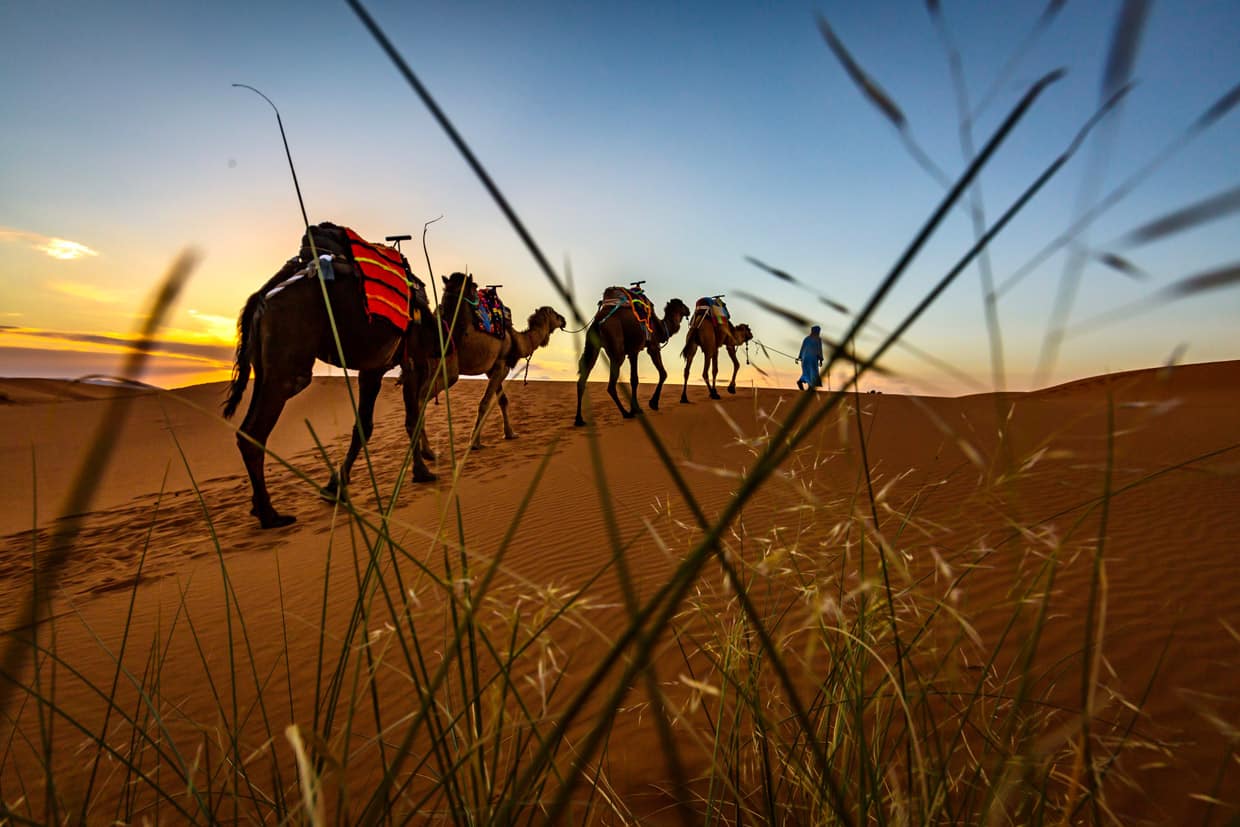
Sleep in the Desert
The experience of sleeping in the desert under majestic stars on a relaxing silent night can be a pure special experience that you can’t get in any other place.
Riding Quad Bike
Trying the lightweight riding quad is a top offer to adventurous people. Of course, the best vehicle for climbing high dunes is the quads. But be careful. They have their dangers.
Sand Surfing
There are no ski lifts, but it’s worth climbing to the top of dunes and enjoying skiing on soft sands.
Spa Day
To lie down Under the Hot and soft sands of the Sahara is one of the activities you can do there as Moroccans do and believe that it treats some of their diseases. They go under the sands to their necks and the locals do it on the hottest daytimes of the summer. However, it may not be a good choice for travelers.
Of course, there are many other things to do, like having a relationship with kind locals, making fire, gathering around it on cold nights of the Sahara, watching sunrises and sunsets, and joining a convoy.
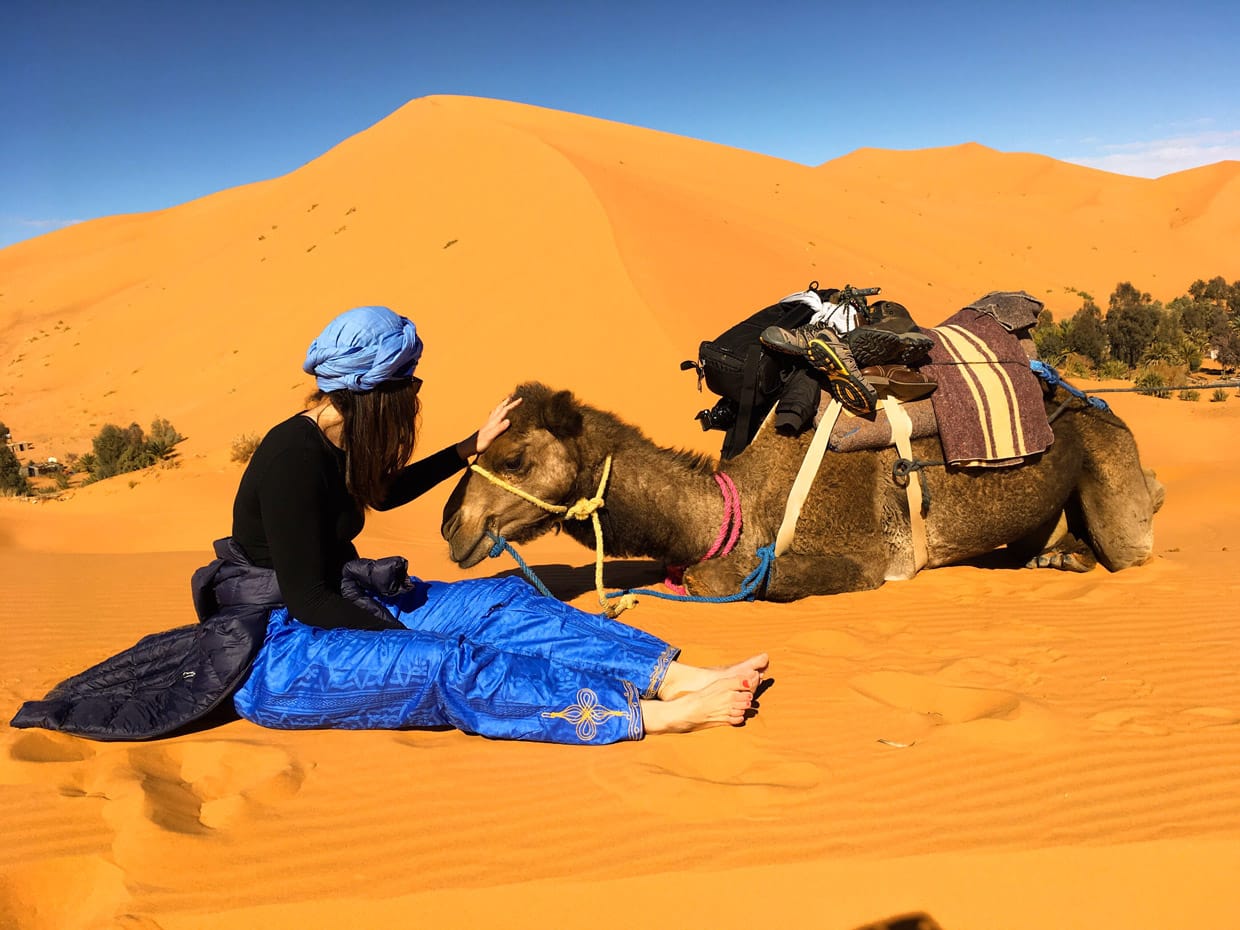
Attractive Places in the Sahara Desert
There are some towns and places around the Sahara Desert. We will tell you about them.
Atlas Film Studios
In Ouarzazate, at the edge of the Sahara Desert, there is the famous Atlas Film Studio known not only for the people in Morocco but also for the people worldwide. Some important historical movies like Game of Thrones are made in this studio due to its fetching historical monuments and sightseeing.
Merzouga
Merzouga is a tiny village in the Sahara Desert, near Erg Chebbi, from which many Sahara tours start. This village is famous for its nice and amazing sunrises and sunsets. There, you can try camel safaris and enjoy Berber culture and fantastic views. While spring’s raining, some lakes of rainwater will become filled, and some migratory birds gather around these lakes.
The other thing to do is climbing massive dunes around Merzouga. It can be adventurous. Motorbikes and camel trekking tours are also the famous amusements of Merzouga. The roads that reach Merzouga are paved and make access to the town easier.
Erg Chebbi
When people speak of the Morocco Sahara desert, the main image that comes to most people’s minds is the image of Erg Chebbi.
The rose gold dunes with a height of 150 meters in an area of about 50 km. You can enjoy watching the sunrise changing the color of sand to orange. The mounds of Erg Chebbi start from the Merzouga that is the most famous and comfortable to access town in Moroccan Sahara.
Maybe these are the reasons that make Erg Chebbi the most famous and crowded place in Moroccan Sahara. Each year lots of visitors go to Erg Chebbi to have a different experience. The Grand Dunes de Merzouga is the name of dunes around Erg Chebbi and Merzouga that are known for their tamarisk trees at the base of them.
How to Visit Erg Chebbi
It can be easily reached from Marrakech. A four-day trip where people can rest in places on the way. The tours go from Marrakech to Ouarzazate, then to Merzouga, and comfortably, they can reach Erg Chebbi dunes.
Erg Chigaga
About 60 km after the last paved road, there is the wildest and largest dunes site in Morocco. These dunes are not comfortable to reach, and this is the reason that there are much fewer visitors than Erg Chebbi, so if you prefer to enjoy the silence and the sands without many footprints, your choice will be the Erg Chigaga.
There are a few tamarisk oases and then dramatic high dunes up to 300 meters—the nearest village to Erg Chigaga in M’hamid. There is a 2-day camel trek to visit the tallest dunes, but you can choose a one-day trip by visiting the shorter and nearer dunes by a one-day camel trek or a faster but more expensive trip 4×4. The desert camps are between dunes. They are mostly secluded and suitable to rest and enjoy the Sahara.
Erg Chigaga is accessible from Marrakech. You can start your journey from Marrakech and then go to Ouarzazate or Agdz. There, it’s possible to stay one night and then go to M’hamid. It’s time to start a Camel trek and go to desert camps between the dunes and visit the Erg Chigaga high dunes.
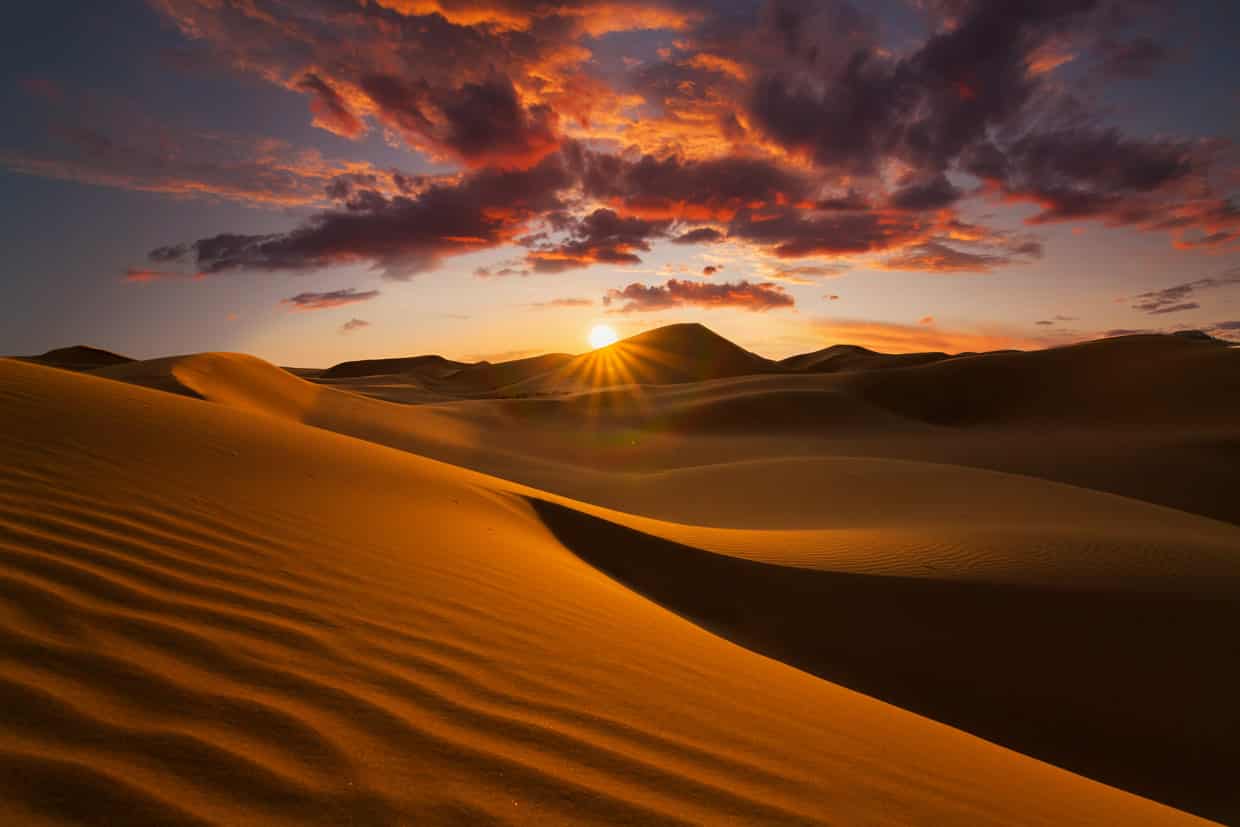
The Thriller Experience of Sleeping in the Desert
Don’t lose this opportunity. You can opt for the more equipped camp near the towns M’hamid or Merzouga or the more traditional camps in deeper Sahara. The camps near the towns have the facilities like flushing toilets and running water, fixed beds, lamps and carpets, electricity and water supplies. Lots of such camps are close to M’hamid or Merzouga, and you can access them so easily. The camps far from the towns are in the form of rectangles. The colorful tents are around, and in the center, there are rugs, tables, and seats for the guests to sit and eat dinner or breakfast. These camps are inspired by Berber traditions.
Agafay, The Alternatives for Desert Camps
Staying at traditional or luxury camps is one of the most important goals of travelers to the Sahara. But there are some alternatives. If you don’t have enough time to visit Erg Chebbi or Erg Chigaga, but you don’t want to lose the pleasure of visiting the desert, you can go to Agafay. Agafay is located near Marrakech. After one hour’s drive, you reach Agafay with a lunar shape surrounded by rocks. It doesn’t have amazing camping between dunes, but you will enjoy the panoramic scenes from the desert to Atlas mountains.
Camps in Agafay
There are a few luxury camps in Agafay like:
Terre des Étoiles Camp
This camp has ten permanent tents with good facilities like comfortable beds and a bathroom equipped with running water for each tent. There, you can try delicious Moroccan foods and use the bars. People can enjoy camel riding, horse riding, and mountain climbing. You have to pay 273 $ per night in this camp.
Scarabeo Stone Desert Camp
In this camp, you will be in nomad-style tents with Moroccan rugs and made of white cotton. You can try taking a shower in the way that Berber does, with black soap and two buckets of hot and cold water. You have a private place to recline and a private terrace to enjoy the scenery of the desert and mountains. The tents are equipped for the cold nights of winters. The prices start from about 295$ per night. You can choose activities like camel riding, mountain biking, massage, and yoga and try drinks and different foods.
La Pause
A very good choice for the people who are traditional life lovers and enjoy a rustic lifestyle. Low mattresses, Moroccan rugs. But it has hot and cold running water for the bathroom and toilet. One of its special facilities is a swimming pool hidden in a small garden that you can escape from the hot sun to its water. It is located 30 km far from Marrakech.
